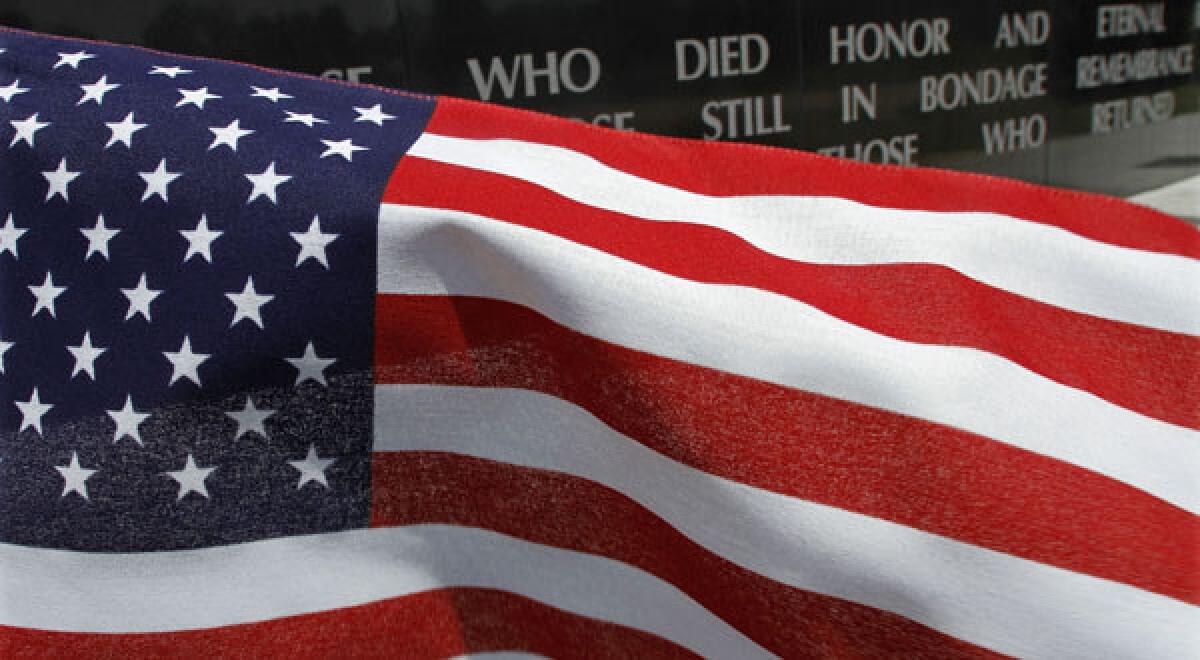All-American flags? U.S. flags should be made in U.S., some say

- Share via
WASHINGTON — Should U.S. flags that fly from federal buildings be made entirely in the U.S.A.?
So ask sponsors of the All-American Flag Act, introduced in response to the $3.6 million in imports of U.S. flags, mostly from China.
The bill’s sponsors picked the eve of Independence Day to call on the House to pass a Senate-approved bill that would require the federal government to purchase only flags made entirely from domestic content.
“We should do all we can to support American manufacturing and job creation, especially when it comes to our most treasured of patriotic symbols — the American flag,” said Sen. Sherrod Brown, a Democrat whose state of Ohio is home to U.S. flag makers.
It was not immediately clear why the bill has yet to come up for a vote in the House, which approved the measure in 2010. That bill never came before the Senate before the session ended.
Rep. Bruce Braley (D-Iowa), the House’s bill’s chief sponsor, said in a statement, “It’s time for the House to act.”
U.S. flag imports were valued at $3.6 million last year, with $3.3 million coming from China, according to the Census Bureau.
Currently, federal law requires that U.S. flags purchased by the federal government contain a minimum of 50% American-made materials. The legislation would require federal agencies to purchase only flags made entirely in the U.S. “from articles, materials, or supplies 100% of which are grown, produced, or manufactured in the United States.”
“In a time when we face economic hardship, it is critical to invest in the manufacturing base,” Brown said during Senate consideration of his bill last year. “There is no product that deserves a U.S.A. label more than American flags.”
A separate bill, the Genuine American Flag Act, that would prohibit imports for sale of foreign-made U.S. flags also has been introduced.
ALSO:
Military identifies 4 killed in crash of firefighting plane
Man shoots and accidentally ignites towns’ firework displays
Twitter data raises question: Who’s following you? Maybe police
More to Read
Sign up for Essential California
The most important California stories and recommendations in your inbox every morning.
You may occasionally receive promotional content from the Los Angeles Times.











